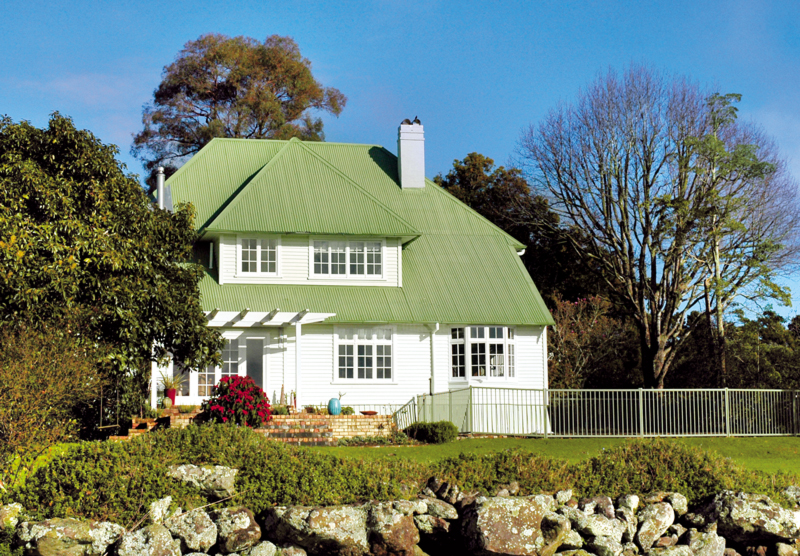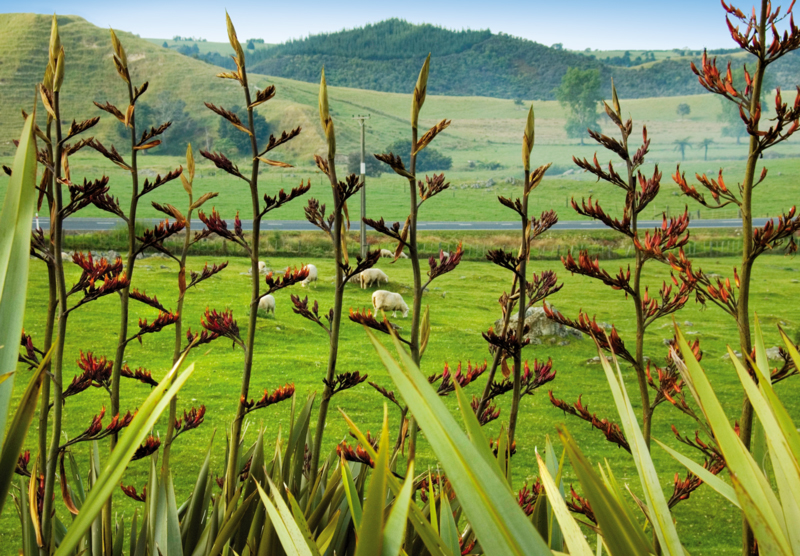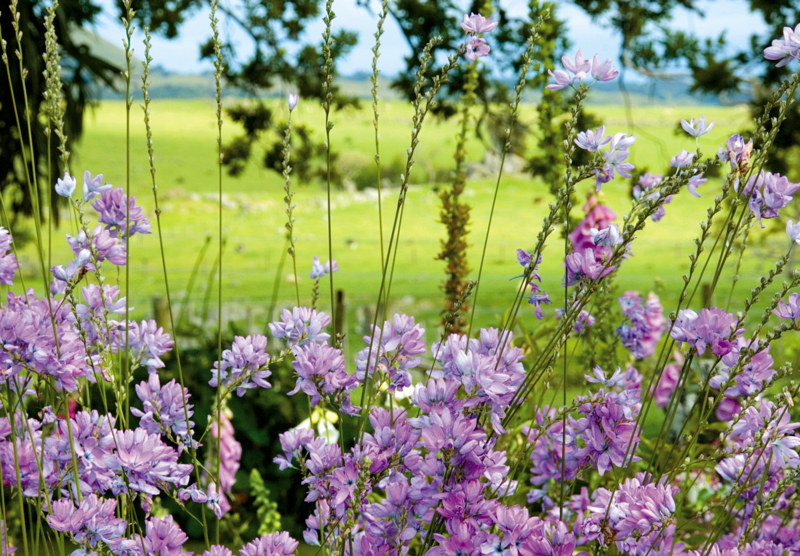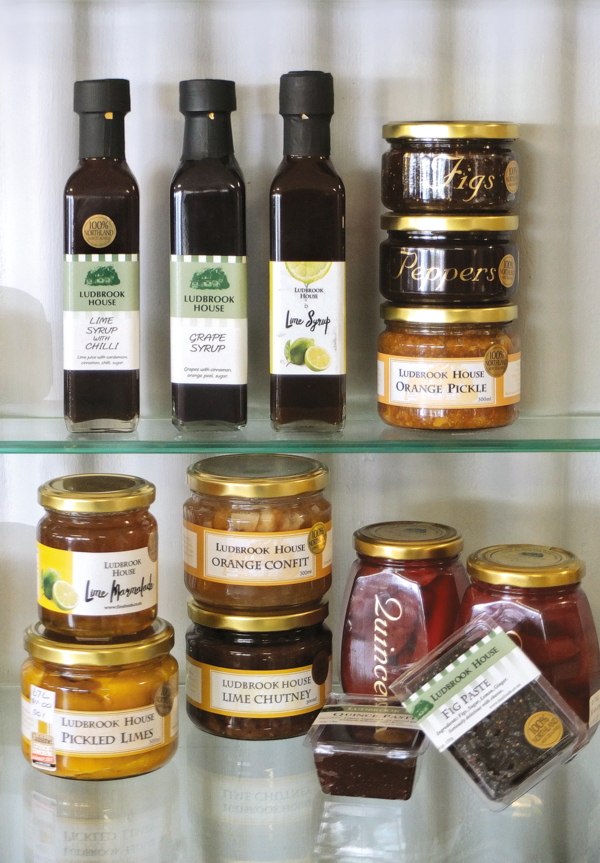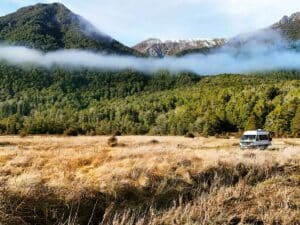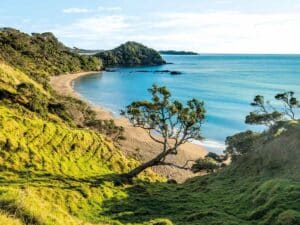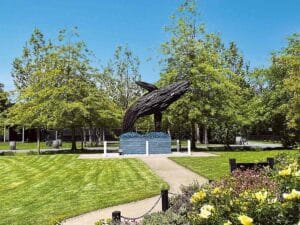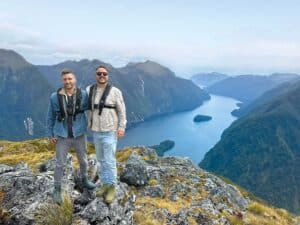It was evening: the salmon pink tints had drained out of the clouds, leaving them smoky grey. It would soon be dark.
In the country, this hour is not always quiet: the cattle were bellowing at each other, a dog barked intermittently, and in the distance, I could hear a faint chewing noise of traffic climbing the low hill on State Highway One.
We were parked between Kawakawa and Kaikohe in the Far North, on Tupe Tupe, the oldest farm property in Ohaeawai. History buffs might be interested to know that Tupe Tupe is part of the Williams estate originally bought for the sons of the missionary Henry Williams, who came to New Zealand in 1823 with the Church Mission Society.
In 1860 Henry and Caroline Ludbrook (nee Williams) bought 2000 acres of the Williams holding and became the first colonial settlers in Ohaeawai. Five generations of Ludbrook have farmed here since. It was a rich experience to be staying among the hills that held so much history.
Much further back, the area was formed by volcanic eruptions. The extinct volcanoes that now rear up in the middle distance were once thriving Maori pa. From the campsite we looked over the Taiamai plains, where Maori gardens once flourished.
In 1815, when Samuel Marsden passed through, he noted the fertile, well-watered soil that nurtured vast crops of edible ferns and potatoes. Today, it’s sheep and cattle that Henry and Caroline’s great-great grandson, Roger Ludbrook, nurtures on the farm and the Taiamai Gardens.
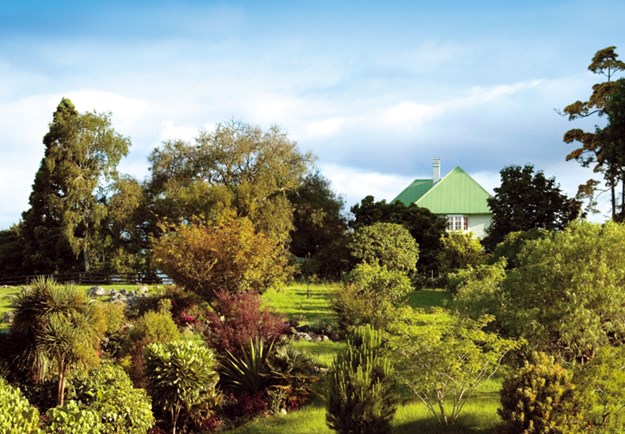 |
The homestead seen from the orchard |
As farm manager he also takes pains to restore and conserve this striking landscape interwoven with gullies, wetlands and rivers, and scattered with rocky outcrops and stands of native trees.
The farm’s landmark homestead (circa 1920) was easily located on the left as we drove north towards Ohaeawai village. The elegant two-storied building, currently being renovated before Roger and his family take ownership, is surrounded by a rambling country garden.
This leads to a large orchard of fig, citrus and stone fruit trees and then to a wet/dry pond surrounded by a high walkway that is festooned with sub-tropical plants and native flaxes.
When, Roger’s parents, Sam and Chris Ludbrook, lived there they turned the historical home into a luxury lodge. The panforte and cakes that Chris made for guests were soon in high demand and a commercial kitchen was installed.
“It set me thinking,” said Chris. “For years I’d fretted about the fruit in the area – lemons, quinces, plums, limes, tamarillos and figs – being left to rot on the trees. The crops were often so abundant that people didn’t know what to do with them. It came to me that I did.” She consulted old recipe books that had belonged to her grandmother and began collecting unwanted produce.
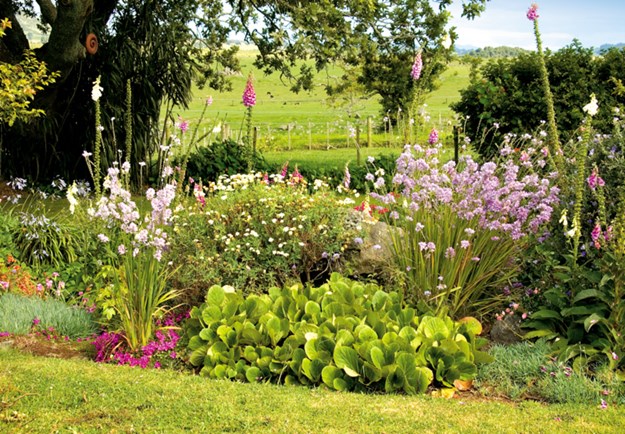 |
The house is surrounded by a splendid rambling garden |
Fast-forward to today and the results of those small beginnings are found in specialty stores throughout the country marketed under the label Ludbrook House. Several of the wide variety of products have won awards and excited the taste buds of anyone who loves innovative food.
The fruit in Ludbrook House jellies, syrups and preserves come straight from the trees (many of them her own) to the pot, and nothing but sugar and spices tampers with the natural flavours. All the products are also sold from a small gazebo in the homestead garden.
Roger has recently carved out a site between a stand of eucalyptus trees and the Peka Peka stream, where water skips across a bed of volcanic lava. Up to five motorhomes and caravans can park there. There are no facilities, but water is available.
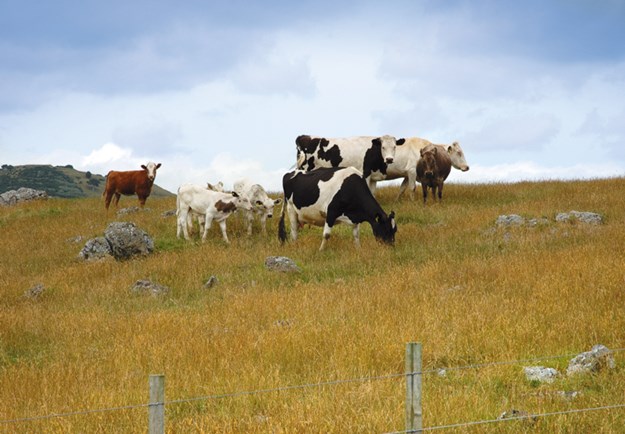 |
Well-fed stock wander the grasslands with a dormant volcano as a backdrop |
Visitors are permitted to walk across the land (as this is a working farm please be guided by Roger as to where to go) and are invited to look around the lovely gardens. Nearby, just a 15-minute drive away at Ngawha Springs, are some delightfully rustic hot pools billed as a panacea for aches and pains, although there is little pain in the cost.
These cauldrons of old volcanic activity have been there for a very long time, used by Maori long before any pink skins arrived. Apparently the Maori chief Hone Heke brought his wounded soldiers to Ngawha Springs for healing.
Back at the farm, night was coming on. The cows and dogs had turned in. There was not a whisper of wind and in the silence I felt the weight of the land’s long history. Stars crowded the great ebony arc of the sky, and as I gazed I think I began to understand the meaning of holy.
Win a two-night stay on Tupe Tupe farm
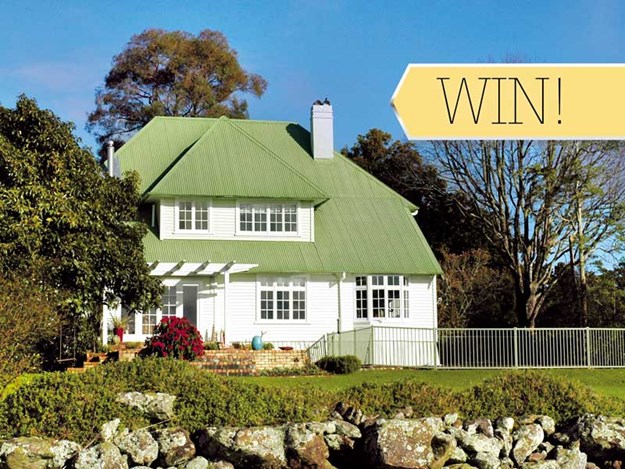
Roger Ludbrook has generously provided a two-night stay on Tupe Tupe farm, including a choice of three Ludbrook House specialty products, to give away (and if you visit in March or April you can also pick your own figs from the orchard).
To be in to win, enter here before 8 February.

